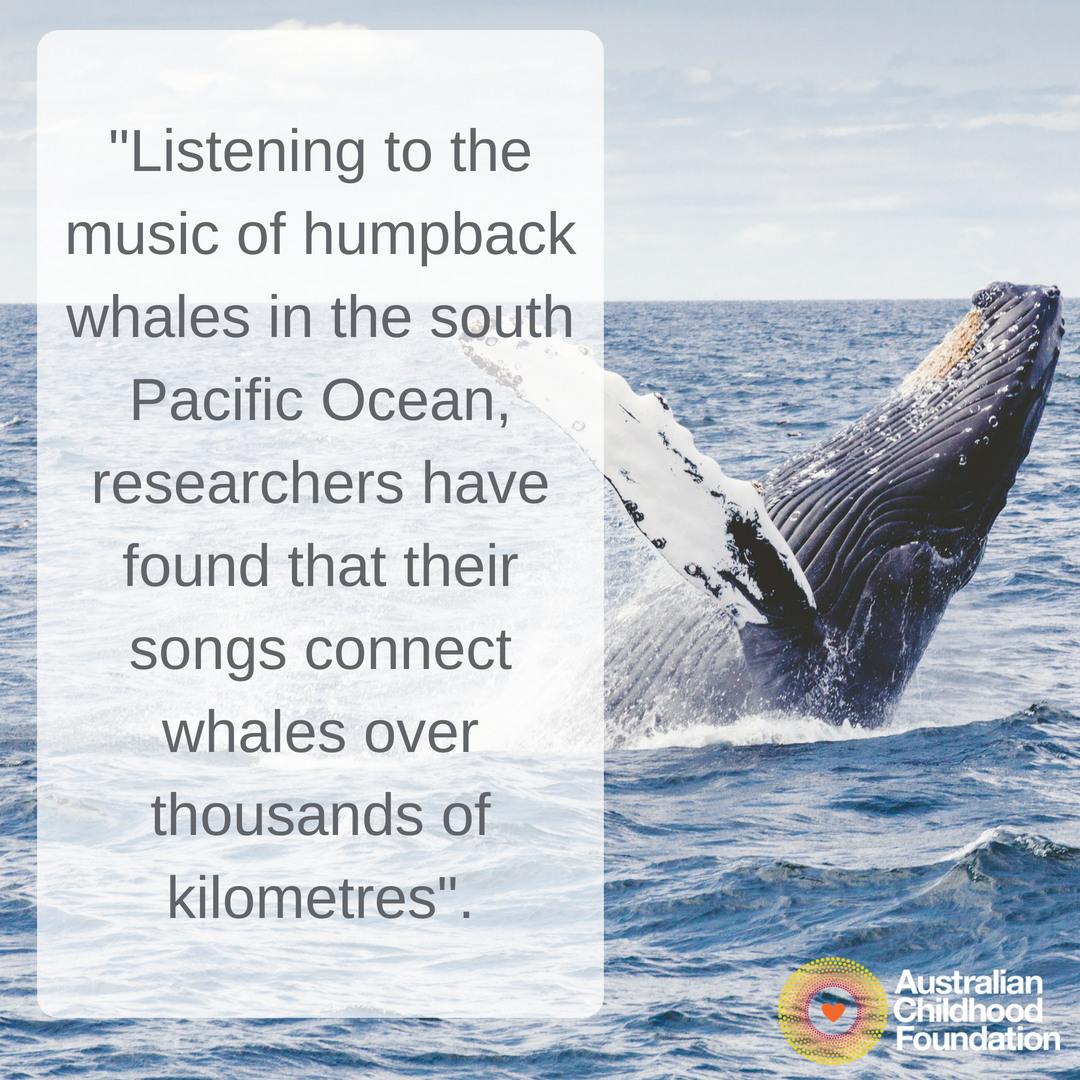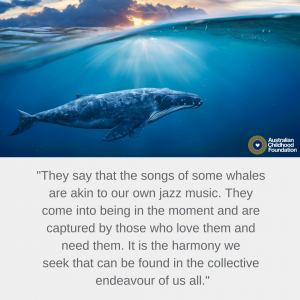
Songs of change and harmony
This article was authored by Dr Joe Tucci,
CEO at the Australian Childhood Foundation.
Every now and then you hear a story about the natural world that highlights the elegance inherent in life’s own momentum. Listening to the music of humpback whales in the south Pacific Ocean, researchers have found that their songs connect whales over thousands of kilometres. All the whales in a population sing the same song at the same time. They learn that song patiently, phrase by phrase.
 The most interesting part is that the sometimes songs are caught in the act of changing as one whale introduces a variation that another then embeds into the original song, transforming it for the whole group.
The most interesting part is that the sometimes songs are caught in the act of changing as one whale introduces a variation that another then embeds into the original song, transforming it for the whole group.
I have tracked the knowledge of trauma and some of its consequences for the past twenty years in Australia. The excitement of its initial launch with the likes of Siegel, Schore, van der Kolk and Perry created an impulse for change. Like the changing whale song, the trauma field morphed as those with skills in application shaped practice – Ogden, Malchiodi, White, Mate, Hughes, Cozolino and Baylin. Cultural ways of understanding trauma have made a significant contribution to our understanding – Judy Atkinson, Michael Yellowbird and others have shaped the song-lines of our communities. Big thinkers such as Steve Porges, Sue Carter, Ed Tronick, Peter Fonagy have recast the substrate in which the songs themselves emerge.
This year we have paused to take stock to listen to what you wanted to meet your professional development needs. We have been busy developing a whole new set of workshops, training initiatives, and resources. After our conference in July, we will be inviting you to take part in learning opportunities which include topics such as neuroscience of leadership, trauma informed practice in youth justice, trauma integrative supervision, the neuroscience of love, parenting after violence. We have also developed a range of therapeutic products that can have profound impacts on the ways that traumatised children and young people can be supported.

The Australian Childhood Foundation has been part of this ever growing community of practitioners committed to translating the neuroscience of trauma and relationships into ways of compassionately supporting children, young people and adults hurt by violence. We have trained more than 60 000 professionals in that time – a number which in itself is extraordinary. I think our collective song has changed now. We are all searching for how to make sense of pain.
We are also needing practical approaches that make adifference to those we are seeing to support and care for.
The formats and modalities for participation will also expand beyond face to face training and include online learning, webinars and
reflective practice sessions where you can share your work in supportive ways that will extend your own practice.
Songs carry with them the meaning of their originators. But they also ultimately become owned by the communities who engage with them and connect through them. They say that the songs of some whales are akin to our own jazz music. They come into being in the moment and are captured by those who love them and need them. It is the harmony we seek that can be found in the collective endeavour of us all.
